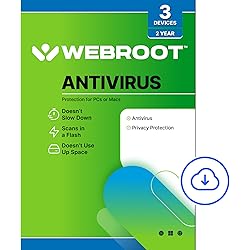VPN and GDPR: Why Privacy Matters More Than Ever
VPN and GDPR are two of the most important considerations for any individual or organization concerned about online privacy in today’s digital world. As our reliance on the internet grows, so does the amount of sensitive information that flows across networks, making data protection an urgent priority. Both Virtual Private Networks (VPNs) and the General Data Protection Regulation (GDPR) play pivotal roles in safeguarding this information—but how do they intersect, and why is their relationship crucial for privacy now more than ever?
Understanding GDPR and Its Focus on Privacy
The General Data Protection Regulation (GDPR) is a comprehensive privacy law enacted by the European Union in 2018. It was designed to give individuals greater control over their personal data and to standardize data privacy laws across Europe. The regulation sets strict requirements on how organizations collect, store, process, and share data belonging to EU residents.
GDPR’s central tenet is the protection of personal data. This includes everything from names and email addresses to more sensitive information, like biometric data or online identifiers. Non-compliance with GDPR can result in severe penalties, emphasizing just how critical privacy is in the modern era.
VPN and GDPR Compliance: A Powerful Privacy Duo
A Virtual Private Network (VPN) is a tool that creates a secure, encrypted connection between your device and the internet. By masking your IP address and encrypting your online activity, a VPN acts as a digital shield against prying eyes. But how does this technology support GDPR compliance?
VPNs help preserve individual privacy by making data more difficult to intercept or trace back to an individual user. VPN providers often emphasize no-logs policies, meaning they don’t keep records of users’ online activities—an important feature for GDPR compliance. If an organization processes EU residents’ data, using VPNs can be part of a responsible data protection strategy.
Why Privacy Protection Is More Critical Than Ever
The rapid digital transformation across industries has exponentially increased the amount of personal data being transmitted and stored. With cybercriminals becoming more sophisticated and data breaches rising, the stakes for protecting personal information have never been higher.
GDPR has raised the bar for privacy expectations, making it imperative for organizations to employ security measures that go beyond traditional firewalls and anti-virus software. Using tools like VPNs not only strengthens compliance efforts but builds consumer trust in a company’s commitment to protecting data.
Protecting User Data with VPN and GDPR-Compliant Practices
Businesses that handle personal data are required under GDPR to implement appropriate technical and organizational measures to ensure a level of security appropriate to the risk. Here, VPNs become a vital resource. Their encryption capabilities help fulfill GDPR’s data security requirements by reducing exposure to unauthorized access during transmission.
However, it’s essential to choose a reputable VPN provider that upholds strong security protocols and transparent privacy policies. A poor choice could result in data being logged, misused, or exposed—defeating the purpose of both the VPN and GDPR compliance.
How Individuals Benefit from VPNs in a GDPR World
For individuals, using a VPN provides a layer of privacy that complements the protections afforded by GDPR. While the regulation defends user rights, a VPN empowers users to proactively safeguard their browsing habits, communications, and digital footprint from ISPs, government surveillance, and cyber threats.
Travelers, remote workers, and anyone accessing public Wi-Fi can especially benefit from VPN use. These networks are common targets for cybercriminals seeking to intercept data. A VPN encrypts this data, turning it unreadable to parties with malicious intent.
Key Considerations When Leveraging VPNs for Privacy
When integrating VPN use into your data privacy strategy, consider the following:
– Jurisdiction: Select a provider based in a country with strong privacy laws and outside major surveillance alliances.
– No-logs Policy: Ensure your VPN strictly does not store or monitor user activity.
– Encryption Strength: Opt for providers offering robust encryption protocols (like OpenVPN, WireGuard, or IKEv2).
– Transparency: Review privacy policies and independent audit reports to confirm that providers live up to their claims.
Conclusion: The Synergy of VPN and GDPR for Ultimate Privacy
Embracing both VPNs and GDPR-compliant practices delivers powerful protection in an age of increasing digital threats and privacy concerns. Together, they form a double-layered defense: GDPR establishes legal protections and rights, while VPNs provide practical, technical safeguards for confidential data. For organizations and individuals alike, prioritizing these measures is not just a legal requirement—but a fundamental step towards a safer digital future.


